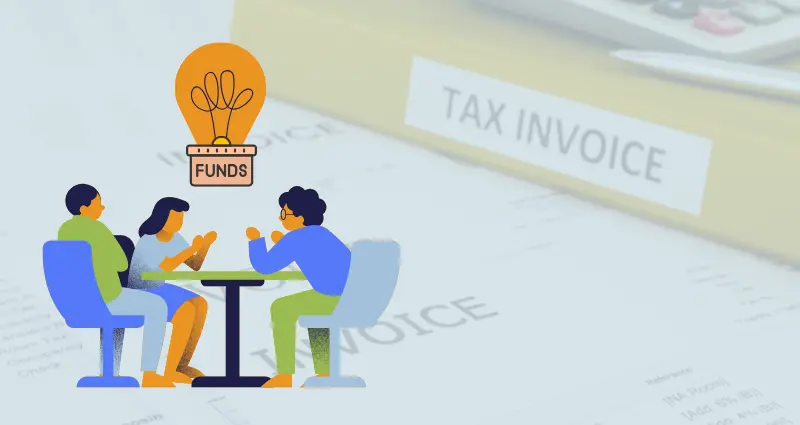How to Manage Invoices Like a Pro During Funding Rounds
Funding rounds are chaotic. Your finances shouldn’t be.
You’ve landed meetings with investors, polished your pitch deck, and maybe even secured term sheets. But amidst all the buzz, there’s one thing that often gets buried: invoices.
If you think they can wait, think again.
During funding rounds, poor invoice management can raise red flags, delay due diligence, and make your startup look disorganized. This blog breaks down exactly how to handle invoicing in these make-or-break phases—without drowning in spreadsheets or stress.
1. Set Up a Clear Invoice Trail Before Investors Ask
Investors want to see that your business is operationally sound. That includes a clean, compliant, and easily traceable invoicing system.
- ✅ With TaxInvoice Pro, you can organize invoices by project, client, or service type
- ✅ Automatically tag and categorize invoices: services, products, retainers, etc.
- ✅ Store digital records securely for instant access—ideal during audits or funding rounds
💡 Pro tip: TaxInvoice Pro lets you label and filter invoices by date range, so you can instantly pull up relevant billing history during investor meetings.
2. Automate What You Can (Seriously)
You’re short on time, especially during funding. Manual invoicing is a productivity killer.
- 👨💻 Set up automated invoice generation and reminders
- 📥 Use tools that auto-generate GST-compliant formats (e.g., ClearTax, TaxInvoice Pro)
- 📆 Schedule recurring invoices for long-term clients
Automating invoices = fewer errors + faster investor reporting
3. Sync Invoices with Cash Flow Projections
Your funding plan depends on solid financial forecasts. But if your invoices are delayed or unclear, your projections won’t match reality.
- 🧾 Always track invoice due dates vs. payment dates
- 🔄 Reconcile invoices with your cash inflow weekly
- 📊 Show investors how receivables match (or delay) your runway
🧠 Pro tip: Use dashboards that sync invoices and bank statements in real time.
4. Be GST-Compliant—Or Risk Legal Delays
Yes, this one matters. Especially in India, missing GST numbers or errors in e-invoices can cause regulatory issues later.
🎯 Make sure you're:
- Using your correct GSTIN
- Including proper HSN/SAC codes
- Issuing e-invoices where applicable
📚 Here’s a great guide to GST invoicing from ClearTax.
5. Have a Separate Folder Called “Investor-Ready Invoices”
Don't wait till the last minute to collect and clean everything.
🗂️ Create a folder with:
- Top 10-15 invoices with big-ticket clients
- Invoices showing consistent revenue
- Paid vs. unpaid invoice summaries
It helps investors immediately understand your revenue quality.
Conclusion
You don’t need a CFO to manage invoices smartly during funding. What you need is a system that is organized, automated, and transparent.
Because when investors come knocking, a clean invoice trail can speak louder than a fancy pitch deck.
👀 Over to you:
What’s one invoice mistake you’ve seen (or made) during funding?
Hit reply—we’d love to include your tip in our next newsletter!

